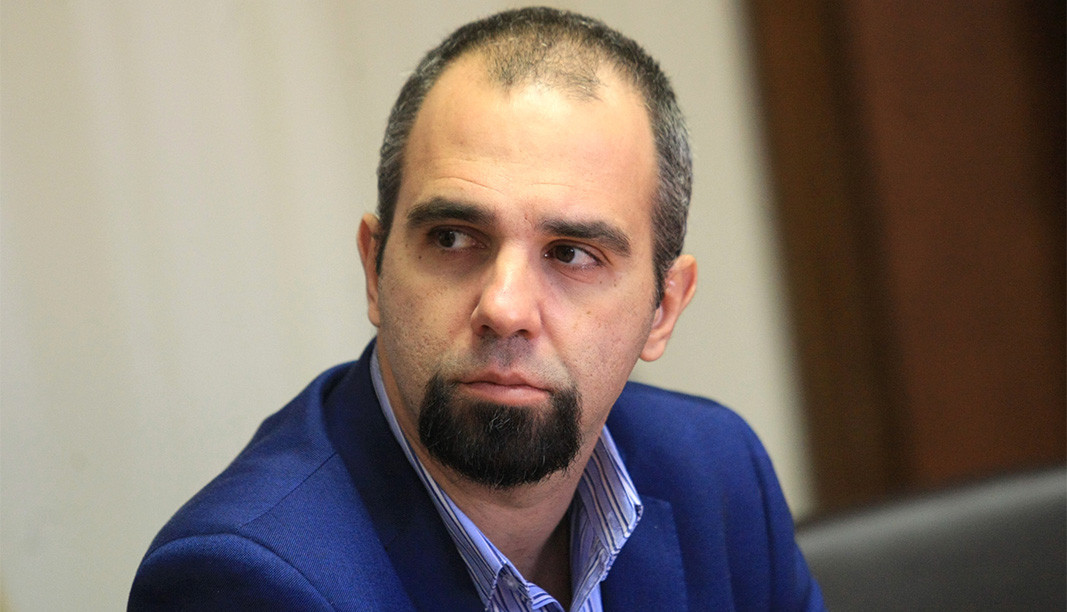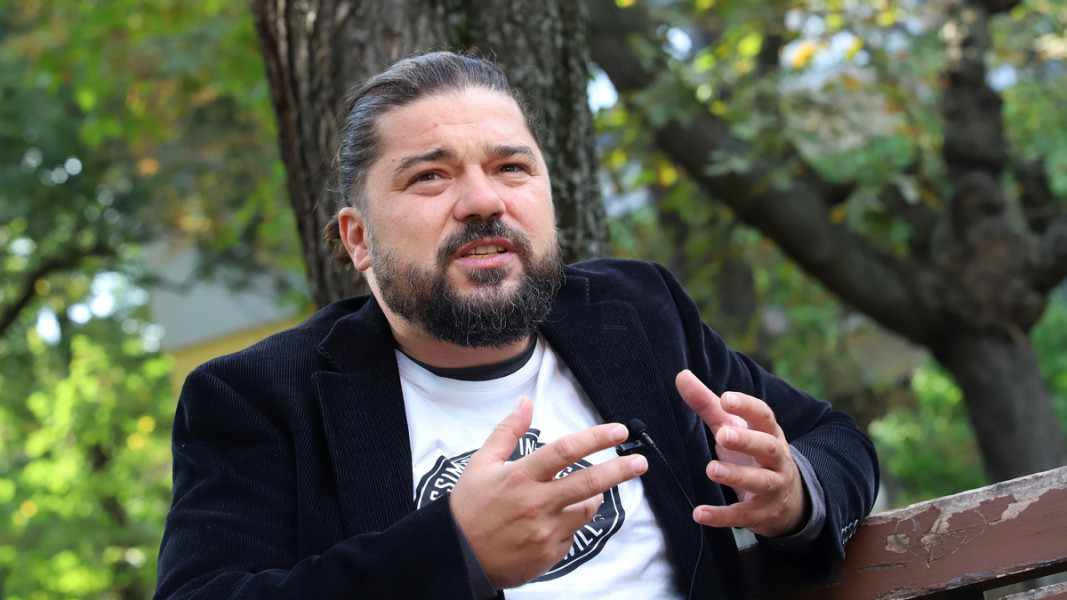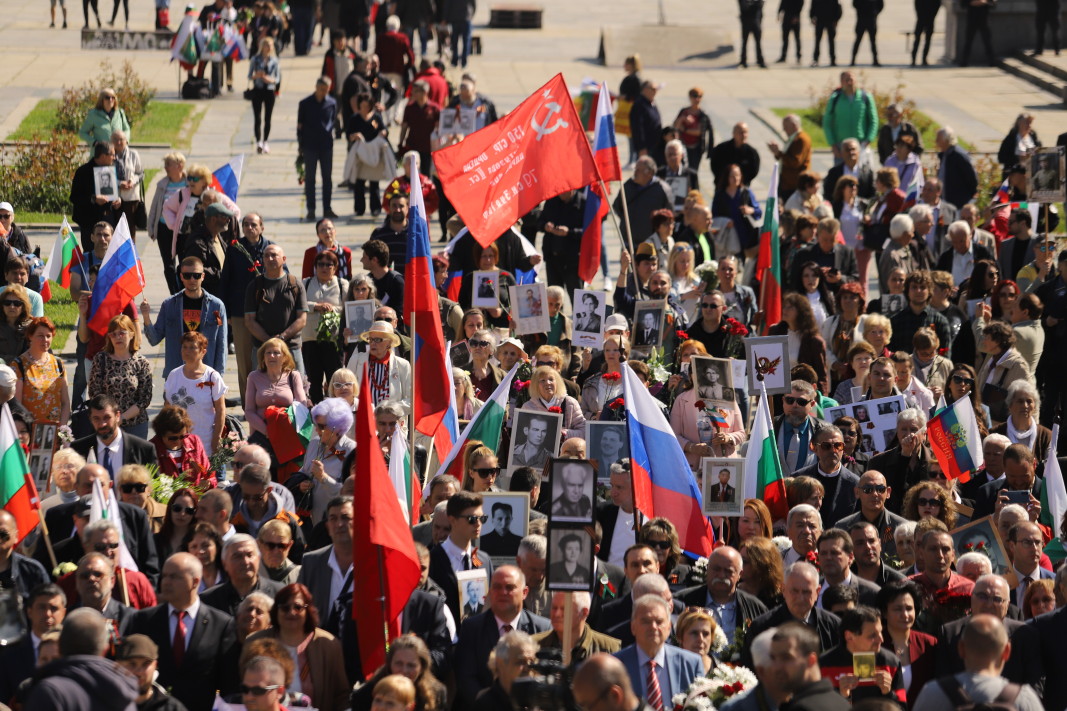May 9th this year has set dividing lines in Bulgarian society, which was previously used to celebrating Europe Day and the Day of Victory over Nazism focusing on the importance of both of them. On the one hand, Europe Day is about celebrating laying the foundations of today's European Union. On the other, the unconditional surrender of Nazi Germany, signed on the night of May 8-9 (22:43 European time; 00:43 Moscow time), is also marked as the Victory Day over Nazism, ending World War II in Europe. Both events are significant and there should be no reason for division, political scientists Parvan Simeonov and Strahil Deliiski say. In an interview with BTA, the two commented that polarized groups in Bulgarian society were noisier, but in fact a minority.
According to Parvan Simeonov, the best option for May 9 would be to give history respect and think about politics separately. “We should not project today's policy on the past. We need to have nuanced thinking."

According to Simeonov, May 8th and May 9th were the days when Nazism was defeated and at the same time May 9 is Europe Day and we must be able to separate these facts from other events. "I think we can think about and discuss these things – we can condemn Putin's aggression and still not forget that in the middle of the 20th century, the Soviet Union, the United States and Britain stood together against Nazism. We can pay tribute to the victory over Nazism, in which Bulgaria also participated during the second phase of the war and at the same time we cannot deny Europe Day," Parvan Simeonov said. According to him, this was a matter of the political elite’s wisdom.
According to political scientist Strahil Deliiski, outside the context of the war in Ukraine, it seems that the idea that Europe Day would have been impossible without Victory Day is commonly shared. However, the current war will surely lead to new dividing lines in society when it comes to May 9, Strahil Deliiski says.

"Society’s polarization regarding the war in Ukraine, is very visible but polarized groups are minorities in the society. Yes, their positions are heard loudly and they set the agenda somehow, but every poll shows that the majority of Bulgarian citizens do not need this type of polarization in order to identify as a group. Minor groups feed on polarization. The problem occurs when these minor groups have a very strong presence in media and in government institutions.”
According to Deliiski, a traditional attitude towards Russia is by no means in conflict with the clear pro-European ideas and values shared by the vast majority of Bulgarian society. "These two things are not mutually exclusive. Division occurs when these attitudes are used for political mobilization. One can have sympathy for Russia traditionally and sympathy for Europe at the same time; there is no contradiction in that. We can be anything we want, but when the choice of identity is shrunk to just two options, this is obviously propaganda."

According to the analyst, the Bulgarian society is severely divided and economic imbalances are at the heart of this division. This is because the gap between different social groups is so wide that it is a matter of a very slight "push" in order for these divisions to be "packaged" in different cultural identity frameworks.
Editor: Darina Grigorova
English: Alexander Markov
Photos: BGNES, libraryRobert Joseph Miller, Bulgaria’s Honorary Consul in Nevada, was awarded the prestigious “Golden Laurel Branch” of the Ministry of Foreign Affairs for his exceptional merits in maintaining the diplomatic relations between the US and Bulgaria. The award..
The cool autumn evenings give us a reason to immerse ourselves in the cosy atmosphere of restaurants in Sofia and try new flavours inspired by global culinary trends. Leading Italian travel platform praises Sofia in autumn..
At 04:00 Bulgarian time on October 26, 2025, we must turn our clocks back one hour. This means one more hour of sleep, but it does not eliminate the stress for the body as a result of the change in the biological schedule,..
On November 8 in Hall 11 of the National Palace of Culture, Bulgaria’s best masters and artisans will be awarded for the third time. The founder and..
Fertility Europe , the pan-European organization that represents patient associations focused on infertility issues, has announced the start of the 9..
Today, in the Radio Bulgaria studio, we welcomed Helmut Matt – a writer, radio journalist and poet, who has maintained a special connection with Bulgaria..

+359 2 9336 661
